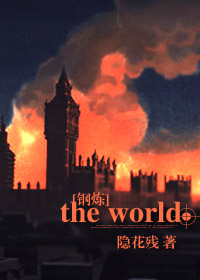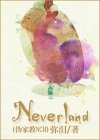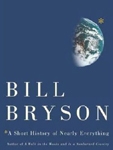奥兰多orlando (英文版)作者:弗吉尼亚·伍尔芙-第47章
按键盘上方向键 ← 或 → 可快速上下翻页,按键盘上的 Enter 键可回到本书目录页,按键盘上方向键 ↑ 可回到本页顶部!
————未阅读完?加入书签已便下次继续阅读!
ike a shell that has lain at the bottom of the sea for centuries and has been crusted over and painted a million tints by the water; it was rose and yellow; green and sand–coloured。 It was frail as a shell; as iridescent and as empty。 No Ambassador would ever sleep there again。 Ah; but she knew where the heart of the house still beat。 Gently opening a door; she stood on the threshold so that (as she fancied) the room could not see her and watched the tapestry rising and falling on the eternal faint breeze which never failed to move it。 Still the hunter rode; still Daphne flew。 The heart still beat; she thought; however faintly; however far withdrawn; the frail indomitable heart of the immense building。
Now; calling her troop of dogs to her she passed down the gallery whose floor was laid with whole oak trees sawn across。 Rows of chairs with all their velvets faded stood ranged against the wall holding their arms out for Elizabeth; for James; for Shakespeare it might be; for Cecil; who never came。 The sight made her gloomy。 She unhooked the rope that fenced them off。 She sat on the Queen’s chair; she opened a manuscript book lying on Lady Betty’s table; she stirred her fingers in the aged rose leaves; she brushed her short hair with King James’ silver brushes: she bounced up and down upon his bed (but no King would ever sleep there again; for all Louise’s new sheets) and pressed her cheek against the worn silver counterpane that lay upon it。 But everywhere were little lavender bags to keep the moth out and printed notices; ‘Please do not touch’; which; though she had put them there herself; seemed to rebuke her。 The house was no longer hers entirely; she sighed。 It belonged to time now; to history; was past the touch and control of the living。 Never would beer be spilt here any more; she thought (she was in the bedroom that had been old Nick Greene’s); or holes burnt in the carpet。 Never two hundred servants e running and brawling down the corridors with warming pans and great branches for the great fireplaces。 Never would ale be brewed and candles made and saddles fashioned and stone shaped in the workshops outside the house。 Hammers and mallets were silent now。 Chairs and beds were empty; tankards of silver and gold were locked in glass cases。 The great wings of silence beat up and down the empty house。
So she sat at the end of the gallery with her dogs couched round her; in Queen Elizabeth’s hard armchair。 The gallery stretched far away to a point where the light almost failed。 It was as a tunnel bored deep into the past。 As her eyes peered down it; she could see people laughing and talking; the great men she had known; Dryden; Swift; and Pope; and statesmen in colloquy; and lovers dallying in the window–seats; and people eating and drinking at the long tables; and the wood smoke curling round their heads and making them sneeze and cough。 Still further down; she saw sets of splendid dancers formed for the quadrille。 A fluty; frail; but nevertheless stately music began to play。 An organ boomed。 A coffin was borne into the chapel。 A marriage procession came out of it。 Armed men with helmets left for the wars。 They brought banners back from Flodden and Poitiers and stuck them on the wall。 The long gallery filled itself thus; and still peering further; she thought she could make out at the very end; beyond the Elizabethans and the Tudors; some one older; further; darker; a cowled figure; monastic; severe; a monk; who went with his hands clasped; and a book in them; murmuring—
Like thunder; the stable clock struck four。 Never did any earthquake so demolish a whole town。 The gallery and all its occupants fell to powder。 Her own face; that had been dark and sombre as she gazed; was lit as by an explosion of gunpowder。 In this same light everything near her showed with extreme distinctness。 She saw two flies circling round and noticed the blue sheen on their bodies; she saw a knot in the wood where her foot was; and her dog’s ear twitching。 At the same time; she heard a bough creaking in the garden; a sheep coughing in the park; a swift screaming past the window。 Her own body quivered and tingled as if suddenly stood naked in a hard frost。 Yet; she kept; as she had not done when the clock struck ten in London; plete posure (for she was now one and entire; and presented; it may be; a larger surface to the shock of time)。 She rose; but without precipitation; called her dogs; and went firmly but with great alertness of movement down the staircase and out into the garden。 Here the shadows of the plants were miraculously distinct。 She noticed the separate grains of earth in the flower beds as if she had a microscope stuck to her eye。 She saw the intricacy of the twigs of every tree。 Each blade of grass was distinct and the marking of veins and petals。 She saw Stubbs; the gardener; ing along the path; and every button on his gaiters was visible; she saw Betty and Prince; the cart horses; and never had she marked so clearly the white star on Betty’s forehead; and the three long hairs that fell down below the rest on Prince’s tail。 Out in the quadrangle the old grey walls of the house looked like a scraped new photograph; she heard the loud speaker condensing on the terrace a dance tune that people were listening to in the red velvet opera house at Vienna。 Braced and strung up by the present moment she was also strangely afraid; as if whenever the gulf of time gaped and let a second through some unknown danger might e with it。 The tension was too relentless and too rigorous to be endured long without disfort。 She walked more briskly than she liked; as if her legs were moved for her; through the garden and out into the park。 Here she forced herself; by a great effort; to stop by the carpenter’s shop; and to stand stock–still watching Joe Stubbs fashion a cart wheel。 She was standing with her eye fixed on his hand when the quarter struck。 It hurtled through her like a meteor; so hot that no fingers can hold it。 She saw with disgusting vividness that the thumb on Joe’s right hand was without a finger nail and there was a raised saucer of pink flesh where the nail should have been。 The sight was so repulsive that she felt faint for a moment; but in that moment’s darkness; when her eyelids flickered; she was relieved of the pressure of the present。 There was something strange in the shadow that the flicker of her eyes cast; something which (as anyone can test for himself by looking now at the sky) is always absent from the present—whence its terror; its nondescript character—something one trembles to pin through the body with a name and call beauty; for it has no body; is as a shadow without substance or quality of its own; yet has the power to change whatever it adds itself to。 This shadow now; while she flickered her eye in her faintness in the carpenter’s shop; stole out; and attaching itself to the innumerable sights she had been receiving; posed them into something tolerable; prehensible。 Her mind began to toss like the sea。 Yes; she thought; heaving a deep sigh of relief; as she turned from the carpenter’s shop to climb the hill; I can begin to live again。 I am by the Serpentine; she thought; the little boat is climbing through the white arch of a thousand deaths。 I am about to understand。。。
Those were her words; spoken quite distinctly; but we cannot conceal the fact that she was now a very indifferent witness to the truth of what was before her and might easily have mistaken a sheep for a cow; or an old man called Smith for one who was called Jones and was no relation of his whatever。 For the shadow of faintness which the thumb without a nail had cast had deepened now; at the back of her brain (which is the part furthest from sight); into a pool where things dwell in darkness so deep that what they are we scarcely know。 She now looked down into this pool or sea in which everything is reflected—and; indeed; some say that all our most violent passions; and art and religion; are the reflections which we see in the dark hollow at the back of the head when the visible world is obscured for the time。 She looked there now; long; deeply; profoundly; and immediately the ferny path up the hill along which she was walking became not entirely a path; but partly the Serpentine; the hawthorn bushes were partly ladies and gentlemen sitting with card–cases and gold–mounted canes; the sheep were partly tall Mayfair houses; everything was partly something else; as if her mind had bee a forest with glades branching here and there; things came nearer; and further; and mingled and separated and made the strangest alliances and binations in an incessant chequer of light and shade。 Except when Canute; the elk–hound; chased a rabbit and so reminded her that it must be about half past four—it was indeed twenty–three minutes to six—she forgot the time。
The ferny path led; with many turns and windings; higher and higher to the oak tree; which stood on the top。 The tree had grown bigger; sturdier; and more knotted since she had known it; somewhere about the year 1588; but it was still in the prime of life。 The little sharply frilled leaves were still fluttering thickly on its branches。 Flinging herself on the ground; she felt the bon

![(综同人)[综] My girl封面](http://www.34gc.net/cover/29/29242.jpg)


